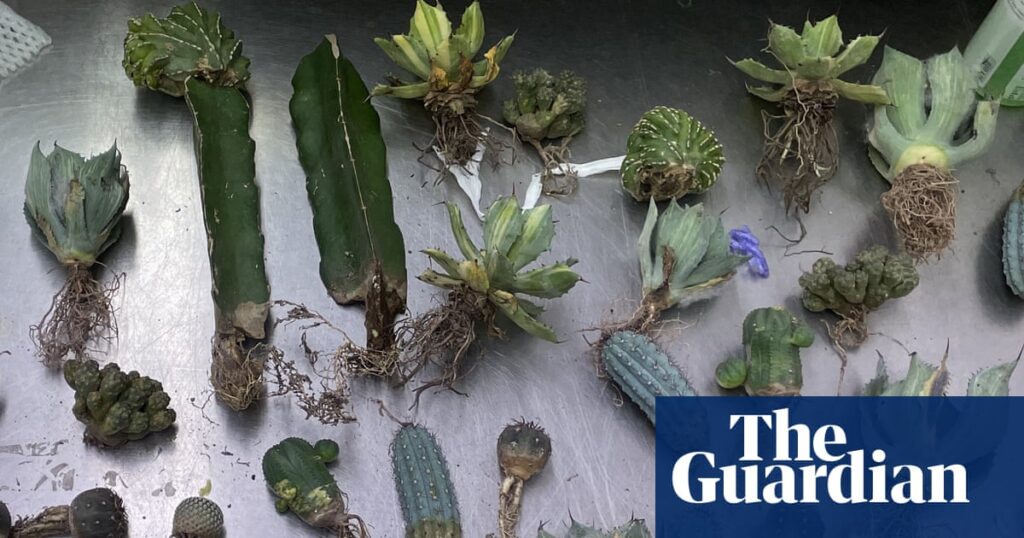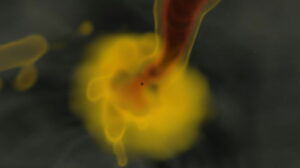
A Queensland woman has been sentenced to six months in prison after being caught importing illegal cacti and other plants disguised as lingerie and shoes. Kirsten Mae Fearn, who pleaded guilty to 14 biosecurity charges, was sentenced at the Brisbane Magistrates Court following a lengthy investigation by the Department of Agriculture, Fisheries and Forestry.
The case unfolded when biosecurity officers intercepted packages arriving in Sydney from Hong Kong between February 2021 and March 2024. These packages, falsely declared as containing lingerie and shoes, were found to contain 57 cacti and succulents. Further investigations led to the discovery of an additional 50 illegal succulents at Fearn’s home nursery in Brisbane.
Biosecurity Breach and Legal Proceedings
The deputy secretary of Biosecurity, Operations and Compliance, Justine Saunders, emphasized the seriousness of the case, noting that Fearn had been repeatedly warned about her illegal activities. “The department elected to deal with this via criminal prosecution because of the seriousness of the matter,” Saunders stated. “Our biosecurity laws are vital to the health of Australia’s economy and environment.”
During court proceedings, Fearn admitted to making false declarations and importing the plants with the intention of selling them online. The maximum penalty for her offenses could have been 10 years in jail and a $600,000 fine. However, after pleading guilty on July 25, she was released immediately on a recognisance release order, requiring her to adhere to specific court conditions.
Implications for Biosecurity
This case highlights the critical role of Australia’s biosecurity laws in protecting the nation’s unique environment and economy. Justine Saunders remarked, “Those who risk Australia’s environment by deliberately trying to bypass our strict requirements will be caught and face the consequences.”
Australia’s biosecurity framework is designed to prevent the introduction of harmful pests and diseases that could devastate local ecosystems and agriculture. The country’s strict regulations are supported by a combination of education and targeted enforcement.
Expert Opinions and Historical Context
Biosecurity experts have long warned about the dangers of illegal plant imports. Dr. Emily Clarke, a leading biosecurity researcher, explained, “Introducing non-native species can have catastrophic effects on local biodiversity. Invasive species often outcompete native plants and animals, leading to significant ecological imbalances.”
Historically, Australia has faced challenges with invasive species, such as the introduction of the cane toad, which has caused widespread ecological disruption. This case serves as a reminder of the ongoing vigilance required to protect Australia’s natural heritage.
Looking Forward
The outcome of Fearn’s case is expected to serve as a deterrent to others considering similar actions. Saunders concluded, “Australia has an enviable biosecurity record. We protect this through education and targeted regulation. We all need to play our part in keeping Australia safe.”
Moving forward, the Department of Agriculture, Fisheries and Forestry will continue to monitor and enforce biosecurity measures to safeguard Australia’s environment. The public is encouraged to report any suspicious activities that may pose a biosecurity threat.
This development underscores the importance of maintaining strict biosecurity protocols and the consequences of attempting to circumvent them. As Australia continues to uphold its biosecurity standards, the case of Kirsten Mae Fearn stands as a stark warning to those who might consider endangering the nation’s ecological integrity.







